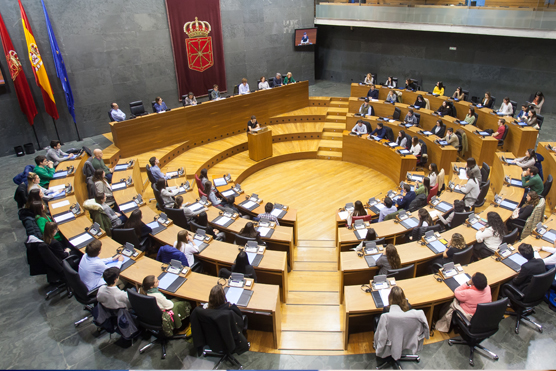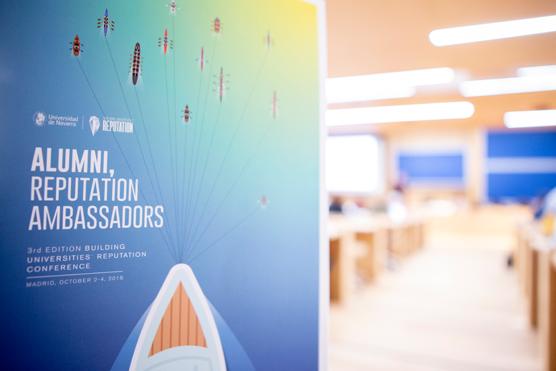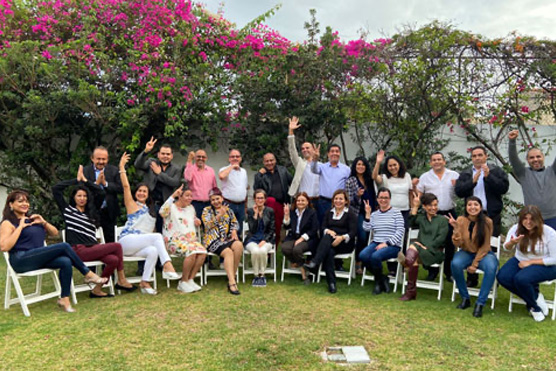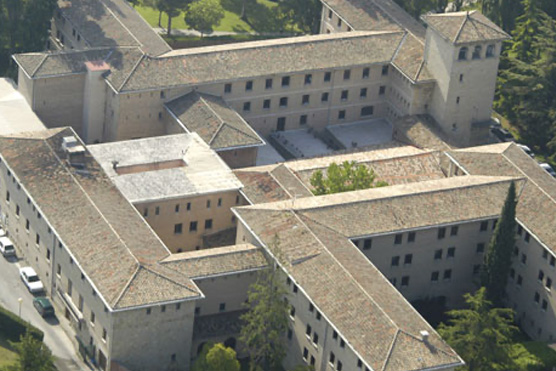CURRENT PROJECTS
University's impact on the community through service-learning projects. A study focused on reciprocity.
project financed by the Ministry of Science and Innovation, coordinated from the University of Santiago de Compostela with the participation of UNED, Pablo de Olabide University, University of Valencia, University of La Coruña, University of Vigo and University of Castilla la Mancha. It is among the projects of generation of knowledge in the framework of the State Program to Promote the research Scientific-Technical and its Transfer, of the State Plan of research Scientific, Technical and Innovation.
Making inclusive values attractive in secondary education
project Erasmus + of the European Union
goal Its aim is to promote, through research and different activities, inclusive values that are attractive to adolescents and to make them available at internship in secondary schools Education . To this end, the aim is to provide teachers with the means to promote open and pluralistic discussions and activities that promote inclusion and encourage moral and civic dispositions at student body. The study is being carried out with the universities of Tartu in Estonia and Latvia, as well as two training centers in Riga (Latvia), another in Estonia, and one in Valencia (Spain). Twelve experts will work with 60 secondary school teachers for two years.
 The Education for citizenship. Historical, philosophical, psychological, sociological and didactic foundations.
The Education for citizenship. Historical, philosophical, psychological, sociological and didactic foundations.
project financed by the Ministry of Education and Culture and the University Foundation of Navarra. Among the results of the project are, in addition to several publications and communications in national and international congresses and courses organized, a project with an applied dimension to the cooperation to development developing a project for the promotion of rural women in San Vicente de Cañete (Peru) with 15 students of Pedagogy and Psychopedagogy. A socio-educational research was also carried out in villages and settlements in the Cañete area, as well as a literacy program for women in this area. Likewise, throughout project links have been established with different international projects and programs such as OIDEL. summer university de Derechos Humanos y Derecho a la Education, the International Office of the Education, (UNESCO), Summer Institute of the Graduate School of Education of Harvard University, and the Politeia Network for Citizenship and Democracy in Europe, of which Concepción Naval is a founding member.
 Educating for social participation
Educating for social participation
Funded by the Fundación Universitaria de Navarra, among the most relevant results of this project was the organization of the Interdisciplinary workshop on Current Educational Issues "La Education intercultural". It included national speakers from the University of Navarra and the department of Education and Culture of the Government of Navarra; as well as international speakers from the University of Sydney and Harvard University. Likewise, several international visits were made to the International Organization for the development of the Education and Freedom of teaching in Geneva, the International Office of the Education and the United Nations High Commissioner for Human Rights, and the Center for the Advancement of Ethics and Character at Boston University. Finally, in 2002 a publication was presented on the 'Impact of communication technologies on Navarre's youth 2001', with the results of the fieldwork work carried out at the request of high school Navarro de Deporte y Juventud (INDJ) of the Government of Navarre.
 Impact of Information and Communication Technologies on Navarre's Youth
Impact of Information and Communication Technologies on Navarre's Youth
project financed by the Government of Navarra, the study goal was the real possibilities of access to ICTs for young people in Navarra. For this purpose, a quantitative study was carried out on young people from 15 to 29 years of age in Navarre, on the use they make of communication technologies as well as the evaluation they grant to them. Specifically, objective social characteristics were analyzed, such as the distribution by age or level of programs of study, and those of subjective subject , such as the attitude towards work or study and the values most appreciated by the youth of Navarre. The activities carried out by these young people were also evaluated, including study, work and leisure. Likewise, the technological equipment available to young people in Navarre was observed, as well as how they value it, how they access it and how often they use it.
 Young people, new technologies and social relations: a qualitative approach.
Young people, new technologies and social relations: a qualitative approach.
Financed by the Government of Navarra, it is the continuation of project Impact of Information and Communication Technologies on the Youth of Navarra, 2001. The publication of report "Impacto de las Tecnologías de la Información y de la Comunicación en las relaciones sociales de los jóvenes navarros", edited by the Instituto Navarra del Deporte y Juventud, of which more than 300 copies have been distributed. As a result of the results of research two communications were presented and published in the electronic book Luces en el laberinto audiovisual, and the participation in XXII seminar Interuniversitario de Teoría de la Education, SITE, with one of the papers framework of seminar. Some of the most relevant publications are Impacto de las TIC en la relación educativa en el ámbito escolar (Naval, Sádaba. 2003) or Los lenguajes de las pantallas. Impacto en las relaciones de los jóvenes y retos educativos (Naval, Sádaba, Bringué, Pérez Alonso-Geta. 2003).
 A Education for communication and social service. Knowledge, Attitudes and Civic Skills
A Education for communication and social service. Knowledge, Attitudes and Civic Skills
The objectives of this project research and development were: to reflect on the social action manifested in communication and social service, to explore the basic civic knowledge, attitudes and skills in a Education for social action, to determine the role played by the family and the different areas of Education in arousing these attitudes; and finally to deepen the answers to the previous objectives by analyzing cases of people who are born or grow up in cultural contexts different from those of their family of origin. Among the most relevant results is the publication Education de la sociabilidad (Naval. 2010. Eunsa) and several articles in ISI, SSCI journals such as training in professional competences (Ugarte, Naval. 2009) or Moral and human rights education (Ugarte, Naval. 2008. Journal of Moral Education).
 Civic Parliament
Civic Parliament
The goal of this proposal is to contribute to determine what social action is, how it is manifested in the social service and in communication, and what motivates it; what knowledge, attitudes and social and civic skills can be distinguished as basic in a Education for social action and what role the family, the school, the university and the media (including information and communication technologies) play and can play in the development of this knowledge, attitudes and skills.
 Researching and promoting character education in Latin American secondary schools
Researching and promoting character education in Latin American secondary schools
This project, funded by the Templeton World Charity Foundation, had a total duration of 4 years. The aim was to achieve a better understanding of how the training of positive character traits (social and moral virtues) can be promoted in Education secondary schools in Central and South America. The project included a theoretical research and an application internship in which Education policies and good practices in schools were reviewed. As part of the result, videos and didactic materials were developed for promote the Education in social and moral virtues.
 Building Universities Reputation
Building Universities Reputation
A project of the University of Navarra with the participation of national and international entities such as the Ministry of Education, lecture of Rectors of Spanish Universities, association of Communication Managers, CASE Europe, British Council, The World 100 Reputation, among others. The aim of goal is to create and nurture a broad and multidimensional discussion on the concept of reputation as applied to universities. As part of this project , a report was created that gathers the instructions for the discussion (2013), the convening and organization of an International Workshop in 2015, and the International Conference Building Universities' Reputation in 2017, and the webinar The Future of the University in a post-pandemic scenario, held in 2021.
 Character education leadership program for Mexican public schools
Character education leadership program for Mexican public schools
project funded by the Templeton World Charity Foundation, goal to adapt, implement and evaluate three Anglo-Saxon initiatives aimed at school leadership teams: Leadership Academy in Character Education (LACE), the PRIMED Institute, and Cultivating Virtue in Leaders (CViL). The project is co-directed by the University of Navarra and the Universidad Panamericana. It is supported by partnership of the administrative office of Education of Jalisco and the Center for Character and Citizenship of the University of Missouri-St. Louis.
A continuation of this project is currently in effect since 2024, extending the program to public schools throughout the State of Jalisco, Mexico.
 Leavering Colegios Mayores for moral development in higher education through the Just Community approach
Leavering Colegios Mayores for moral development in higher education through the Just Community approach
This project seeks to foster development of character and leadership in the Senior Colleges, based on the approach of Lawrence's Just Communities.


